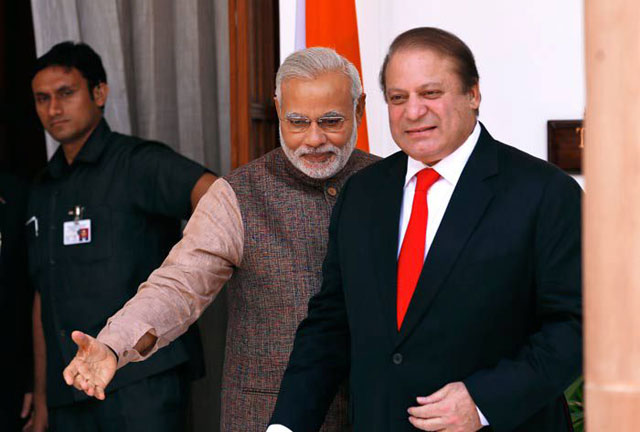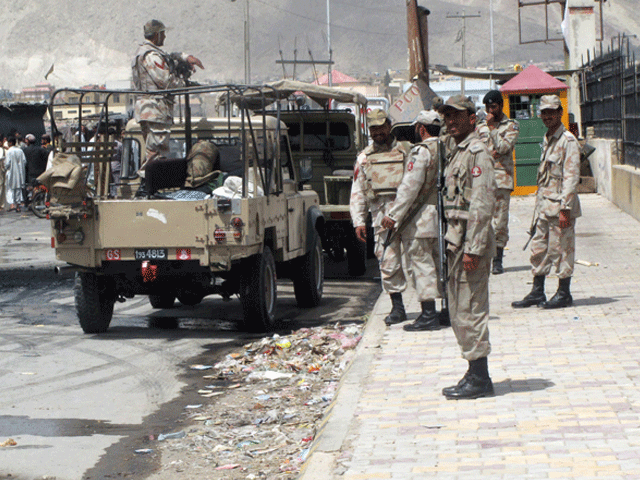
In this complex and challenging scenario, Pakistan has to formulate and implement a policy that optimises its national interest. This is no easy task considering that as a self-inflicted weakness, we do not have a full-time foreign minister or a minister of state. Compounding this weakness is the gap between the civil and military leaderships, which have differing perspectives on major issues relating to India, Afghanistan and the US. Bridging these gaps would require a more effective control of foreign policy by actualising state institutions that the prime minister has so far deliberately neglected for inexplicable reasons. One can only surmise that he has some in-built fear in institutionalising governance, including foreign policy. As a result, he has failed to civilianise the military-dominated state through institution-building. With these serious structural and personal flaws, Pakistan has not been able to optimise its foreign relations and remains on the defensive.
We have extremely close and strategic relations with China and with the CPEC project, the bonds between the two countries are likely to grow. Nonetheless, it will be prudent to make serious efforts at improving our relations with the US, India and Afghanistan despite there being major differences with these countries. We have experienced the pitfall of relying exclusively on the US during the Cold War, the consequences of which we continue to suffer to date. The flaw in this is that whatever the country gains from relying on one camp, much of it is dissipated in countering the hostility that it invites from the other global power. In its sincerity, China itself has been advising Pakistan to improve its relations with India. We need to learn from China’s experience. Despite its serious differences with the US and India at a strategic level, it has maintained strong economic and commercial ties with both countries.
Several columnists and commentators have argued that Pakistan is not isolated, by drawing attention to our warm relations with China, Saudi Arabia and Turkey. This point has merit but is that enough? Why restrict our options and not broaden them by looking at the world through a wider lens? We have to ensure that whatever economic and political gains that accrue from our close relationship with China are not dissipated in countering hostility from India and Afghanistan, as well as the economic and political pressures that the US bears upon us. European countries, too, are influenced in their policies towards us when our relations with the US and India are tense.
Pakistan remains uncertain of the real intentions of the US and its commitment to a long-term engagement with us. Another major point of disagreement are the frequent American drone attacks on Pakistan’s borderlands. According to latest statistics, the US has fired the highest number of drones on Pakistan as compared to any other country. Its latest measure now sees the US withholding $300 million of military aid to Pakistan after Defense Secretary Ash Carter failed to certify that enough action has been taken against the Haqqani network. The US is building pressure on Pakistan in multiple ways and has linked assistance to results in accordance with its preferences. Tacit support to the Haqqani network and the Taliban shura by our establishment remains a constant irritant for the US. It is certainly not advisable to invite the hostility of the Haqqanis and the Afghan Taliban as they are a force to reckon with on our borders, but anything beyond that is against the basic norms of diplomacy and an unwarranted liability. Under no circumstances should Afghan dissident groups be allowed to operate from our territory. This has provided an excuse to India, with the connivance of Afghanistan, to use TTP leaders to subvert conditions in Fata and Balochistan as a quid pro quo.
The Indian lobby, both in Congress and the State Department, is heavily influencing US policy towards Pakistan. It has been Pakistan’s weakness that it has not much to offer the US in terms of geo-economics. Despite 40 years of trade relations, it has yet to find full access of its textiles in the American market. In comparison, India, Bangladesh and Sri Lanka have done far better. In the present age, soft power plays a major role in shaping relations with countries and we have paid scant attention to this aspect in building bridges with the US. The perception about Pakistan in the US is fairly negative and the same is true about the perceptions prevalent about the US in Pakistan.
Clearly, we have excellent relations with Saudi Arabia but these are essentially at the elite level. How is our hardworking labour force being treated in oil-rich countries, including in Saudi Arabia, is a subject that seldom concerns our rulers.
It would be a challenge improving relations with a stubborn BJP-led Indian government. However, even bitter enemies have found ways of developing a functional relationship in the pursuit of higher national interests. Saner voices in India are advising Narendra Modi to change his policy towards Pakistan, which is hurting their country’s interest. How far he would be amenable to change is uncertain. The mega tragedy that struck Quetta on August 8 saw 70 persons, mostly lawyers, losing their lives. Only detailed investigations will determine which group committed this heinous crime, but the level of distrust is so high that fingers have been pointed towards India, almost as a reflex action.
Given all this, it would be naive to state that developing a discreet balance in relations with major powers is an easy task, more so for a country where the military often has the final say and the political leadership is weak and disinterested.
Published in The Express Tribune, August 10th, 2016.
Like Opinion & Editorial on Facebook, follow @ETOpEd on Twitter to receive all updates on all our daily pieces.









1732343209-0/BeFunk_§_]__-(36)1732343209-0.jpg)







COMMENTS (11)
Comments are moderated and generally will be posted if they are on-topic and not abusive.
For more information, please see our Comments FAQ